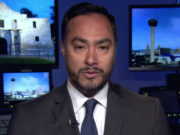The Daily Beast reports that at tonight’s State of the Union address, President Barack Obama will again criticize the Supreme Court’s decision in 2010’s Citizens United v. FEC on the eve of its fifth anniversary and propose a new version of a previously-abandoned draft Executive Order expanding disclosure requirements for companies holding government contracts.
Back in 2011, the White House planned to issue an executive order requiring companies that seek federal contracts to publicly disclose contributions to groups that air political advertisements, including ones that air few such ads and therefore keep their donors private. However, the administration abandoned the effort in 2012 after meeting stiff bipartisan opposition in Congress and from nonprofit groups. Then-House Majority Leader Steny Hoyer, a Maryland Democrat, warned, “You know, I think the issue on contracting ought to be on the merits of the contractor’s application and bid and capabilities… I think there [are] some serious questions as to what implications there are if somehow we consider political contributions in the context of awarding contracts.”
If The Daily Beast’s report is correct, the administration is unwisely considering a revival of this proposed executive order, with the slight change that in this version only companies that actually receive federal contracts will be subject to its provisions. In the old version, which CCP also vocally opposed, any company seeking a federal contract would have been forced to comply. (It bears noting that this change is likely a result of the recently signed into law CRomnibus’s inclusion of a policy rider preventing funding for an executive order that would mandate disclosure of contributions by contractors applying for federal contracts.)
The Daily Beast suggests that issuing the order would fit the theme of the Obama administration’s “fourth-quarter comeback,” in which the President seeks to “restore his credentials as an activist outsider shaking up Washington.” It would make sense for the order to be politically-motivated, because it sure isn’t good policy.
Publicly disclosing companies’ political activity increases the risk that politicians will use that information to play politics with federal contracts, rewarding allies and punishing the rest. The change in the proposal that allows companies to avoid disclosure until after they have secured a contract is little consolation: most companies with one federal contract have had others before, and expect to have more in the future.
Furthermore, companies’ political contributions to candidates and political parties, as well as independent expenditures, are already publicly disclosed. The only additional disclosure this provision would mandate is of contributions to organizations that are not primarily political but spend some amount on political advertising. In other words, the order would force private citizens and companies to disclose membership dues and donations they make to organizations that engage in political speech in addition to their other primary activities.
Furthermore, companies’ political contributions to candidates and political parties, as well as independent expenditures, are already publicly disclosed. The only additional disclosure this provision would mandate is of contributions to organizations that are not primarily political, but spend some amount on political advertising. In other words, the order would force private citizens and companies to disclose membership dues and donations they make to organizations that engage in political speech in addition to their other primary activities. As we’ve written before, this form of disclosure masquerades as meaningful data, but is really just junk disclosure. For example, if an organization spends less than half of its budget on politics, it’s impossible to know whether a donor gave for that purpose. It’s just as possible that they are not even aware of, or oppose, the organization’s political messaging. If the donation was earmarked for political ads, current law requires disclosure. The real purpose of such new disclosure measure is to curtail giving to trade groups.
President Obama’s new contractor disclosure proposal misses the mark just like last time. Far from reducing corruption or informing the public, it will actually create new avenues for government-sanctioned corruption, cause financial harm to valuable trade associations, and serve to confuse voters about who supports what.













